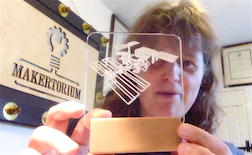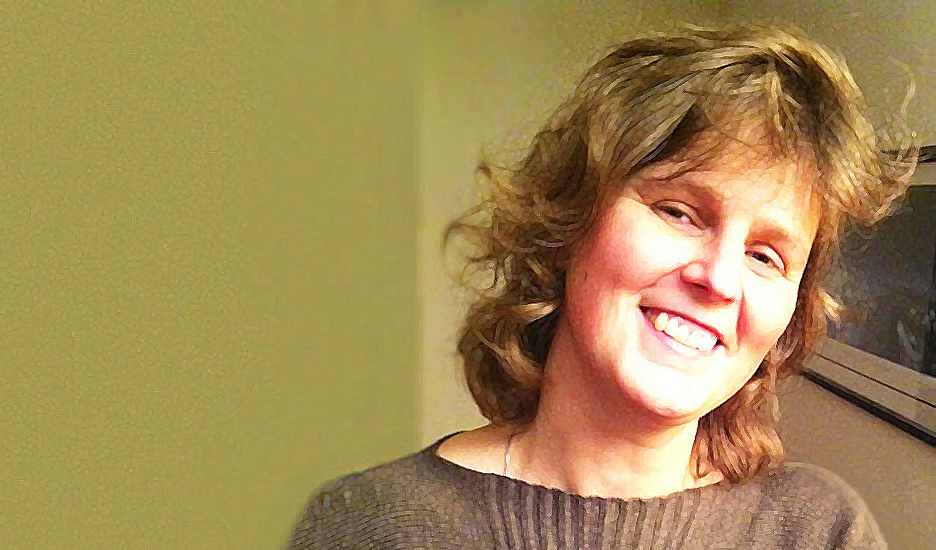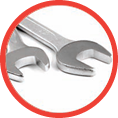Lucy Rogers, Future Strong Hero, tells us how
![]() Lucy Rogers, Future Strong Hero
Lucy Rogers, Future Strong Hero
Lucy Rogers is Founder of Makertorium in the U.K., has a
Ph.D. in Fluid Mechanics, builds robot dinosaurs, and is author
of It’s ONLY Rocket Science.
Future Strong Hero Series: Insights from top leaders,
change makers and thought leaders who are creating better,
bolder tomorrows.
• • • • • • • • • • •
The Life of a Rocket Scientist: I make engineering fun. Which includes
earning my Ph.D. by blowing bubbles. I was working with a company that
made fire fighting equipment. They knew how to extinguish petrochemical
fires, but weren’t quite sure why it worked. I filmed the process with
high-speed video to analyze it.
I’m currently making 3-D printed mini-versions of London’s famed double
decker buses. By connecting them to the Internet, my models are linked
into the London transport system, which knows where every bus is at any
given moment. So the little bus starts flashing green when a bus is
getting close to your stop, or red if there are problems on your route.
The client did not want the phone-app version of this because she kept
getting distracted by everything else on her phone.
Recently, I worked with a theme park on the Isle of Wight, Blackgang Chine,
which had animatronic dinosaurs. One of the main dinosaurs went down,
and they called me in. We brought a whole team of hackers together —
volunteers from the maker community — and rebuilt it, and trained the
staff to reprogram the dinosaurs and fix things themselves. We also
included a Random mode, so park visitors could never tell what the T-Rex
would do. I like petrifying children! Toddlers, teenagers, and everyone
loved it — usually running away screaming!
What Are the Big Issues You’re Dealing With?
With the Internet of Things (IoT), you now get so much data from every
thing and every activity. The big issues revolve around what you want to
do with that data. Airlines are now putting RFID tags on your luggage,
so, with an app, you can now track your bag yourself all the time.
I see the coming era as: control is coming back to the user.
There are so many possibilities. Tracking everything will ultimately help
us make better use of all our resources — natural and man-made. My car,
which will be a shared car, will drop me off and go do other things while
I’m at work, and then come back for me when I’m ready to leave. If we’re
smart, this will help us find new ways to use a lot less.
This requires multiple things of us. One of which is more empathy.
Treating things, and the people who use them, with greater respect.
Many experts are thinking that IoT will create a surge in leasing almost
everything. Like you may soon lease your washing machine, and the
supplier will charge you per use, as well as upgrade it on a regular basis.
But will people treat those leased things as well as they treat things
they own? And will planned obselence of everything drive up the use
of resources instead of conserving them? We’ve got to be mindful of
these issues as we go forward.
What About Future of Work Issues?
Humans are built to be good at adapting and learning. Schools, society,
and workplaces force a lot of that out of us. But we’re still far better
at those things than any kind of robot or AI (Artificial Intelligence).
So, although robots will take over a lot of the less-skilled, manual
labor jobs — they’ll work 24×7 and don’t need sick days and holidays
and benefits — we’ll need people to come up with all the ideas that
will take us forward.
Right now, we simply are not investing enough in the people who will
be replaced by robots and in the training to helping them to adapt.
And this needs to begin in primary school. Less teaching them to
pass exams, and more teaching them the skills to continuously keep
learning and continuously adapt. Also, computer intelligence will
help tailor learning to each individual’s needs and learning styles.
We know that this is possible by looking at us as consumers. Ten or
more years ago, many senior citizens were not using email, now many
are happily using iPads and iPhones. If we make it easier for people
to change, and if it’s to people’s advantage to change, they will.

Play and fun are such a crucial part of this! In the
maker community, the tools are getting simpler
and more fun to use. For example, I’m a space
geek and a while ago I wanted something that
lit up when the International Space Station passed
overhead. I started learning how to do that because it was something
I wanted and was fun for me.
The Biggest Thing You’ve Learned About Our Future?
My hope, and what I try to help with, is that people start thinking
about how they can be creative. How you can start making the
world the way you want it to be, not just “they” should fix this.
“They” is us. “Us” is me. And I have to do something now.
More than anytime in the past, we have the tools to help everyone
do that. And if you don’t have the skills to do something yourself,
online communities — especially the maker community, which is all
about giving — are filled with people who will help.
Soon companies will stop needing to tell employees “You must
do this, you must do that,” and start asking its very creative
workforce, “How do we make this a better customer experience?
How can we make money? How do we make it more efficient?”
The challenge is not changing individuals. It’s changing culture,
so we’re leveraging all this change for the good of all. We still
have a ways to go there. Ultimately, we must all remember that
we’ve only got one planet. Being a maker to save resources isn’t
just about cost-effectiveness and productivity, it’s about saving
our one and only planet.
Rogers Strongisms
• Control is coming back to the user. How will you seize it?
• Humans are infinitely creative and adaptive. Most individuals
have that ground out of them. Regain your childlike creativity,
regain your future.
• Don’t wait for “them” to fix things!











